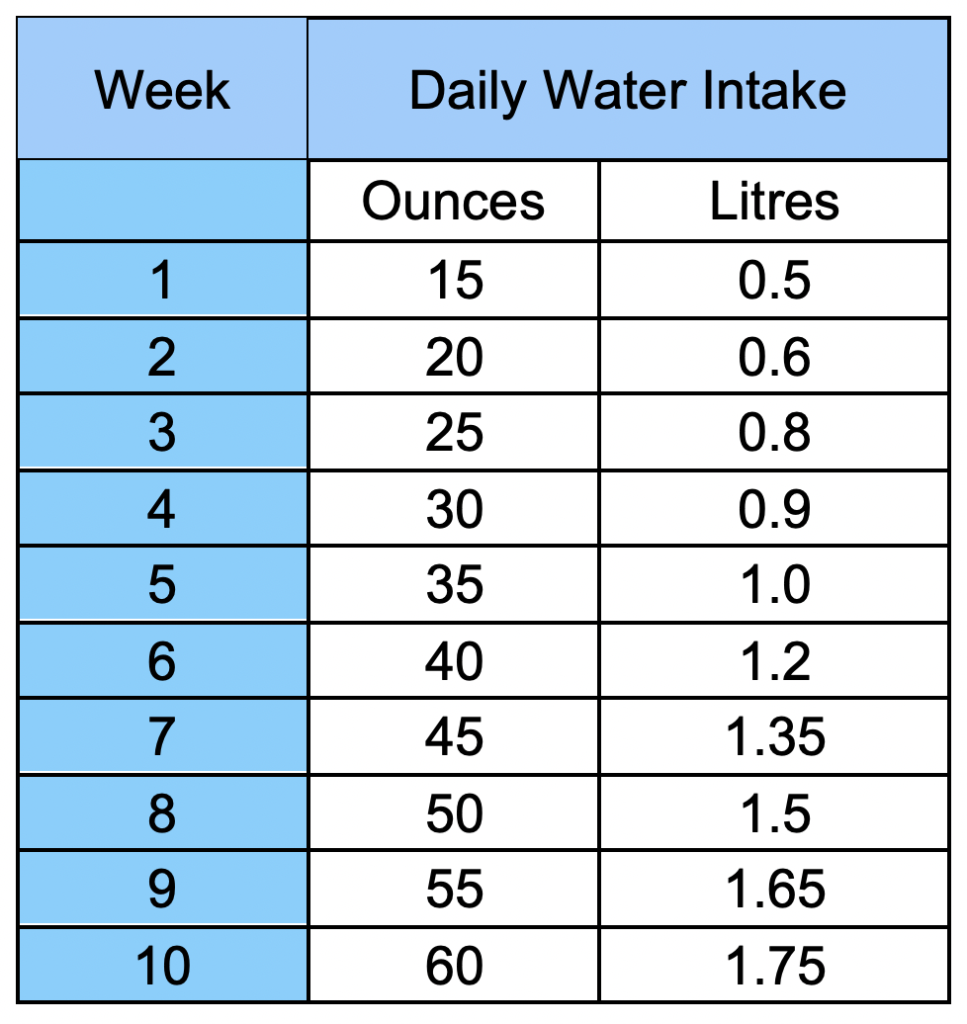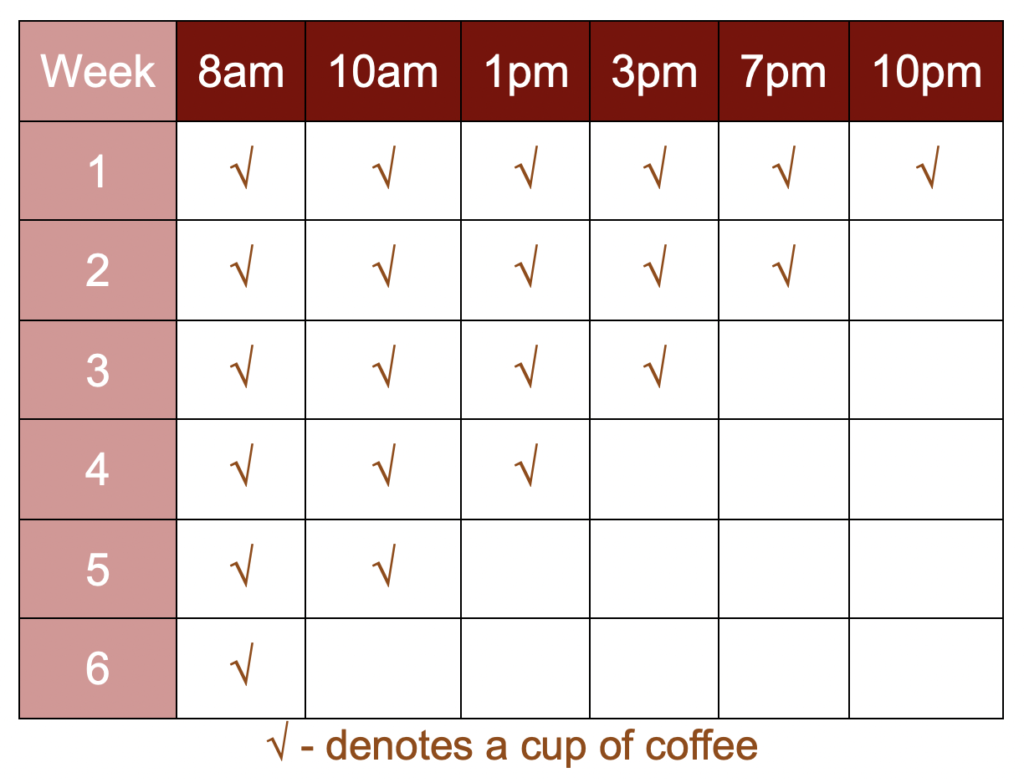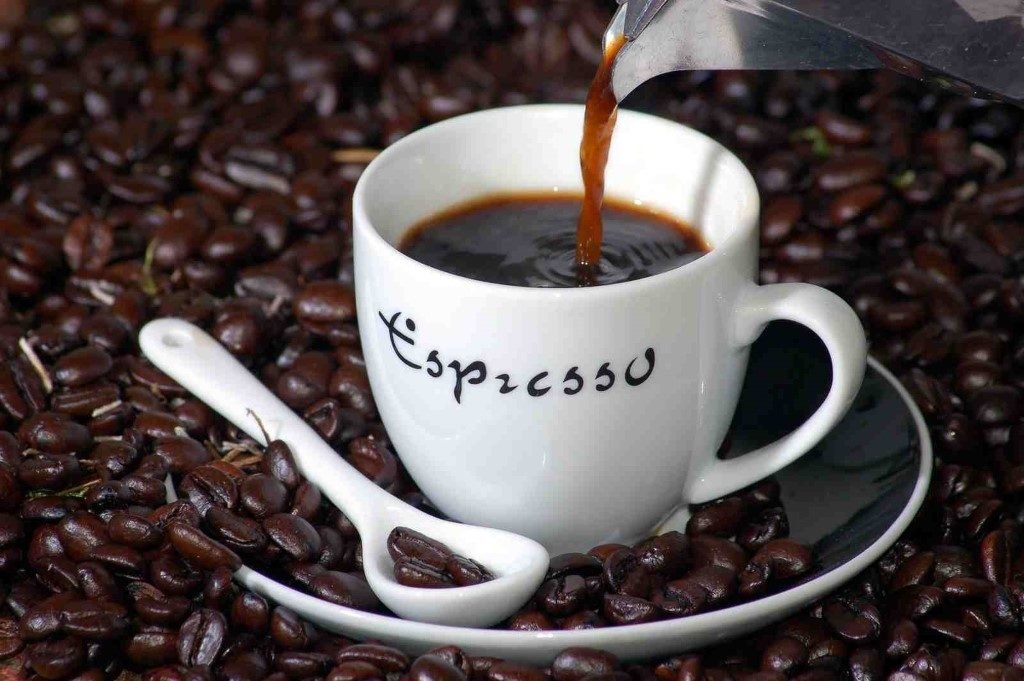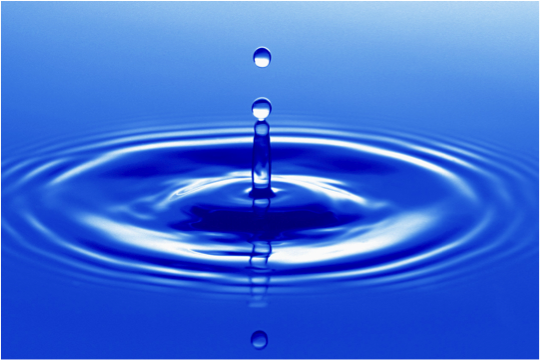As I have suggested before, hydration levels are crucial to all bodily functions, including the immune system.
In a previous Blog, I suggested that the quality of water you drink is crucial. In this Blog Post, I will explain strategies to ensure optimal hydration.
The Water Intake Plan
Now, if you’re not drinking much water at the moment or aren’t drinking any at all, then you need to increase your intake gradually.
For example, if you’re drinking 10 ounces (0.3 litres) of water per day and your minimum amount needs to be 60 ounces (1.77 litres), then you might increase like this:

Dehydration Reduction Plan
In addition to increasing hydration levels, you will need to reduce dehydrating beverages.
Many beverages today take more water out of the system than they put in. Some are diuretics (increase the rate of the elimination of water) whilst others are so high in sugar, they take more water to process the sugars in the digestive system than they add to the body.
Common diuretic beverages include caffeinated drinks, such as coffee, tea, cola and other energy drinks, and all alcoholic beverages.
In addition to being diuretics, caffeinated drinks also stimulate your stress hormones and therefore can upset your hormone balance over time. If you upset your hormones, you are probably going to be affecting your immune system too.
In addition, coffee beans are one of the most highly sprayed crops with pesticides etc. This means your coffee beans are again toxic. If you are to drink coffee, it is highly recommended you only ever drink certified organic coffee.
Also, many sports and energy drinks today contain caffeine. These drinks also contain sugar or artificial sweeteners. Candace Pert, PhD and author of “Molecules of Emotion”, states that sugar, “Is unhealthier and more addictive than heroin.”
Artificial sweeteners on the other hand have been shown to be toxic and disrupt or kill brain and nerve cells. In the movie, “Sweet Misery: A Poisoned World”, by Cori Brackett, they show several people who lives have been ruined through the use of artificial sweeteners, many of which have severe neurological disorders.
When it comes to caffeinated drinks, it is not recommended to stop immediately. Caffeine is a powerful drug and the withdrawal symptoms can be very unpleasant.
I suggest to my clients to slowly reduce caffeine intake over a series of weeks. I always suggest they begin by eliminating the caffeinated drink taken latest in the day first, then the next latest and so on. A coffee reduction schedule might look like this:

As you can see as the weeks go by, the latest caffeinated drink of the day is dropped until only the first one of the day is drunk.

Ideally, no caffeine should be drunk, but for some die-hard caffeine drinkers, one coffee or tea first thing in the morning isn’t so bad. It ties in with the time of the day when your stress hormones are high, so is much better than drinking in the evening when your adrenal glands (adrenal glands secrete stress hormones) are trying to rest.
You might wish to use a similar schedule to wean yourself off sodas or fizzy drinks or fruit juices too. Just replace each of those drinks with good quality water or herbal tea.
With regards to alcohol, my suggestion would be to stop completely if you’re concerned about getting ill from a virus in the short term, until you feel it is safe again. Alcohol is a poison and a diuretic. Alcohol also plays havoc with blood sugar levels and we know fluctuating blood sugar is likely to inhibit your immune function to a degree.

